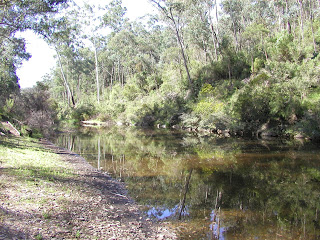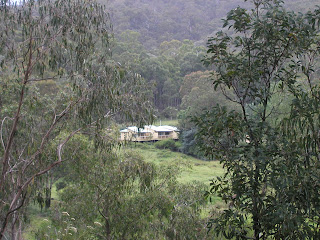Know what we are doing to our world!Sometimes the idea of mandatory home pages for all net users begins to make sense. Such is the case for the
Worldwatch Institute and its publications. As Melbourne swelters in 40 degree plus temperatures and the State Government makes unprecedented requests for citizens to curb their energy use (which is still primarily based on '
dirty' brown coal), the cumulative effects of our actions becomes apparent to all. Engaging with reports such as
"Share the Worlds Resources" makes it abundantly clear that need for action is still way behind political will. It is time for citizens to demand braver, more responsible long term decisions from governments. This extract highlights some of the most disturbing trends:
"With a global population of 6.6 billion and growing, the ecosystem services upon which life depends are being stretched to the limit due to record levels of consumption:
- In 2006, the world used 3.9 billion tons of oil. Fossil fuel usage in 2005 produced 7.6 billion tons of carbon emissions, and atmospheric concentrations of carbon dioxide reached 380 parts per million.
- More wood was removed from forests in 2005 than ever before.
- Steel production grew 10 percent to a record 1.24 billion tons in 2006, while primary aluminum output increased to a record 33 million tons. Aluminum production accounted for roughly 3 percent of global electricity use.
- Meat production hit a record 276 million tons (43 kg per person) in 2006.
- Meat consumption is one of several factors driving soybean demand. Rapid South American expansion of soybean plantations could displace 22 million hectares of tropical forest and savanna in the next 20 years.
- The rise in global seafood consumption comes even as many fish species become scarcer: in 2004, 156 million tons of seafood was eaten, an average of three times as much seafood per person than in 1950."
However it is hard for me to see that the actions announced yesterday by the British Government to
commit to nuclear power expansion are brave or responsible. On the BBC last night I was impressed with the arguments being put forward by Zac Goldsmith -
his arguments on this matter struck me as systemically desirable and ethically defensible!
Anyone here in Oz who listens overnight to the BBC and
Deutsche Welle radio (see links to the right) transmitted on ABC News radio, cannot help but be struck by the different worldviews and balance of content that are presented. The German perspective is far closer to my own.
The latest
Worldwatch State of the World report
takes a new approach which combines what is good that is happening with the traditional analysis of what is wrong. A combination of new rules (institutional arrangements) combined with conservation and market mechanisms seems to be at the core of their recommendations for innovation.


